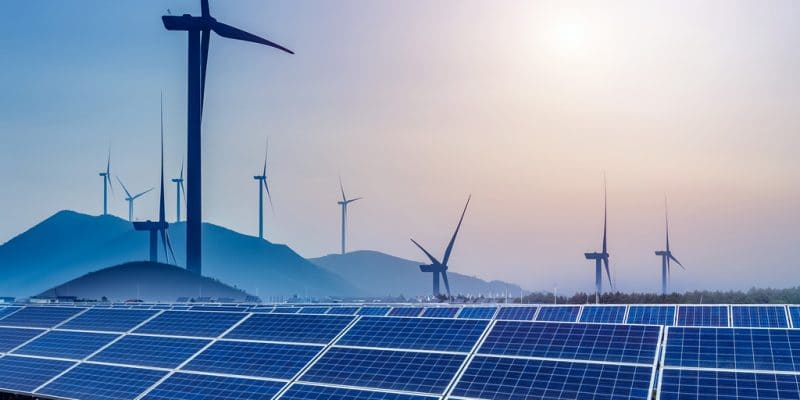Windlab and Eurus Energy, two independent power producers (IPPs) will build a hybrid solar, wind and electricity storage plant in Meru County in central Kenya. The project, which will be developed as part of a public-private partnership, will produce 80 MW of electricity.
A hybrid power plant will soon be built in Kenya. It will combine solar, wind and battery electricity storage and will be located in Meru County in the centre of the country. A public-private partnership (PPP) has recently been signed between Windlab Africa, a subsidiary of the Australian group Windlab Limited, Eurus Energy, one of Japan’s largest wind energy developers, and Meru County Investment and Development Corporation (MCIDC).
The agreement was signed on the margins of the seventh session of the Tokyo International Conference on African Development (TICAD 7), which has just ended in Yokohama, Japan. The hybrid plant, which will be built in central Kenya, will have 20 wind turbines, 40,000 solar panels and a battery storage system. All the installations will provide 80 MW of electricity.
A $150 million investment
Windlab Africa and Eurus Energy will implement the project from 2021. The construction of the Meru hybrid power plant will require a $150 million investment. The funds will be provided by the three project partners. The electricity will be sold to the Kenya Power utility (KPLC).
The 80 MW of electrical energy produced by the facility is capable of supplying 200,000 Kenyan households. “We are delighted to bring to Meru County, Kenya, a world-class innovation in the renewable energy sector and expertise in project development,” said Roger Price, CEO of Windlab.
Windlab and Eurus Energy have already collaborated together on other renewable energy projects in Africa. In Tanzania, for example, to finance the construction of the Miombo Hewani wind farm, Windlab Africa sold 25% of its shares to Eurus Energy for $10 million. The Miombo Hewani wind project will be implemented in three phases of 100 MW each. The first involves the installation of 34 wind turbines for an investment of $250 million. Windlab estimates that this electricity generation capacity will benefit one million people, mainly in the city of Makambako. The three phases of the wind farm will produce a total of 300 MW and provide electricity to 3 million people.
Jean Marie Takouleu






